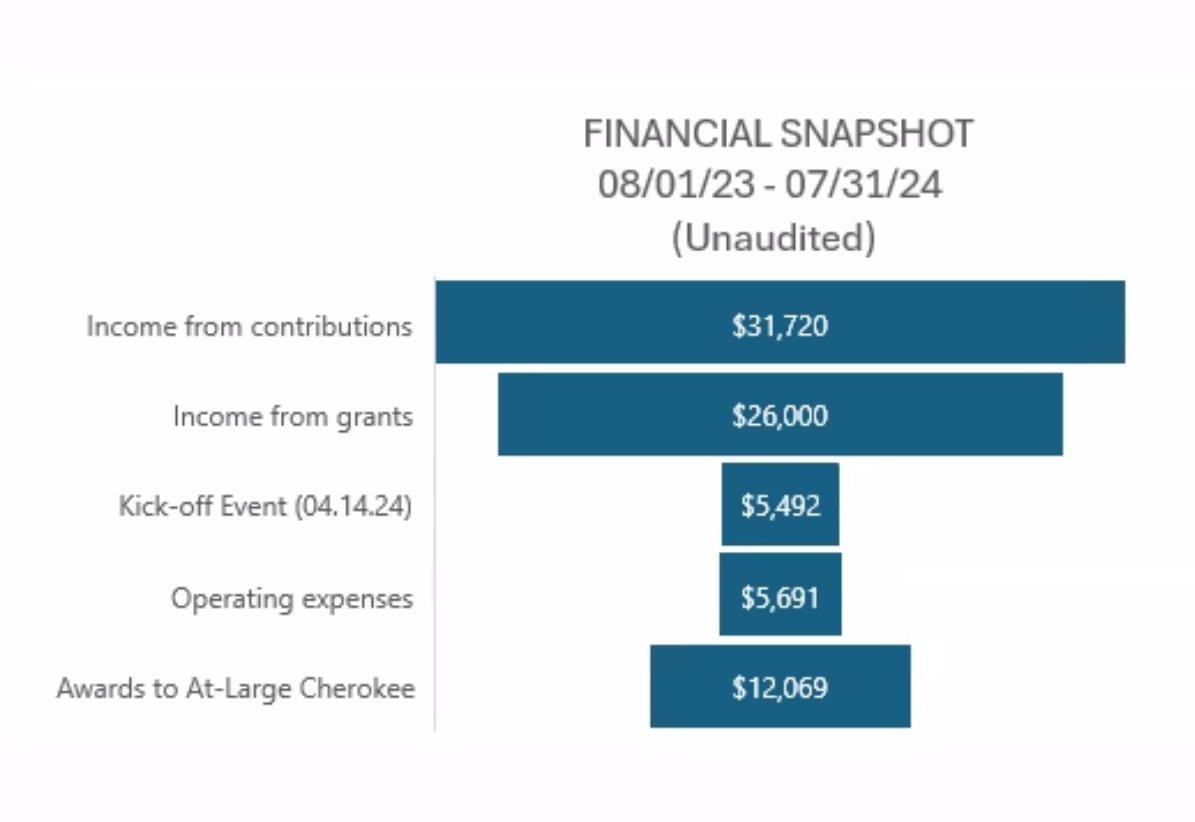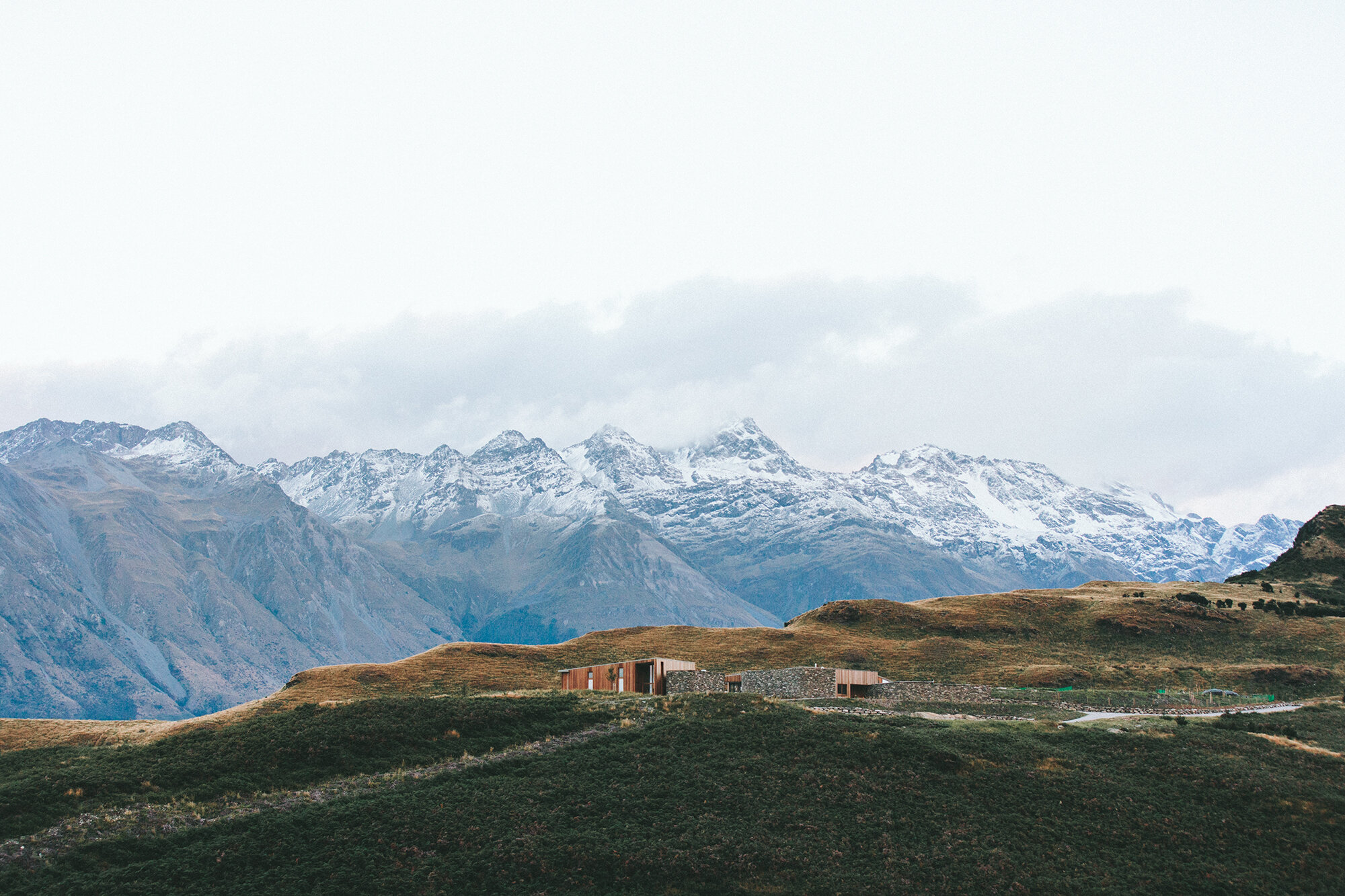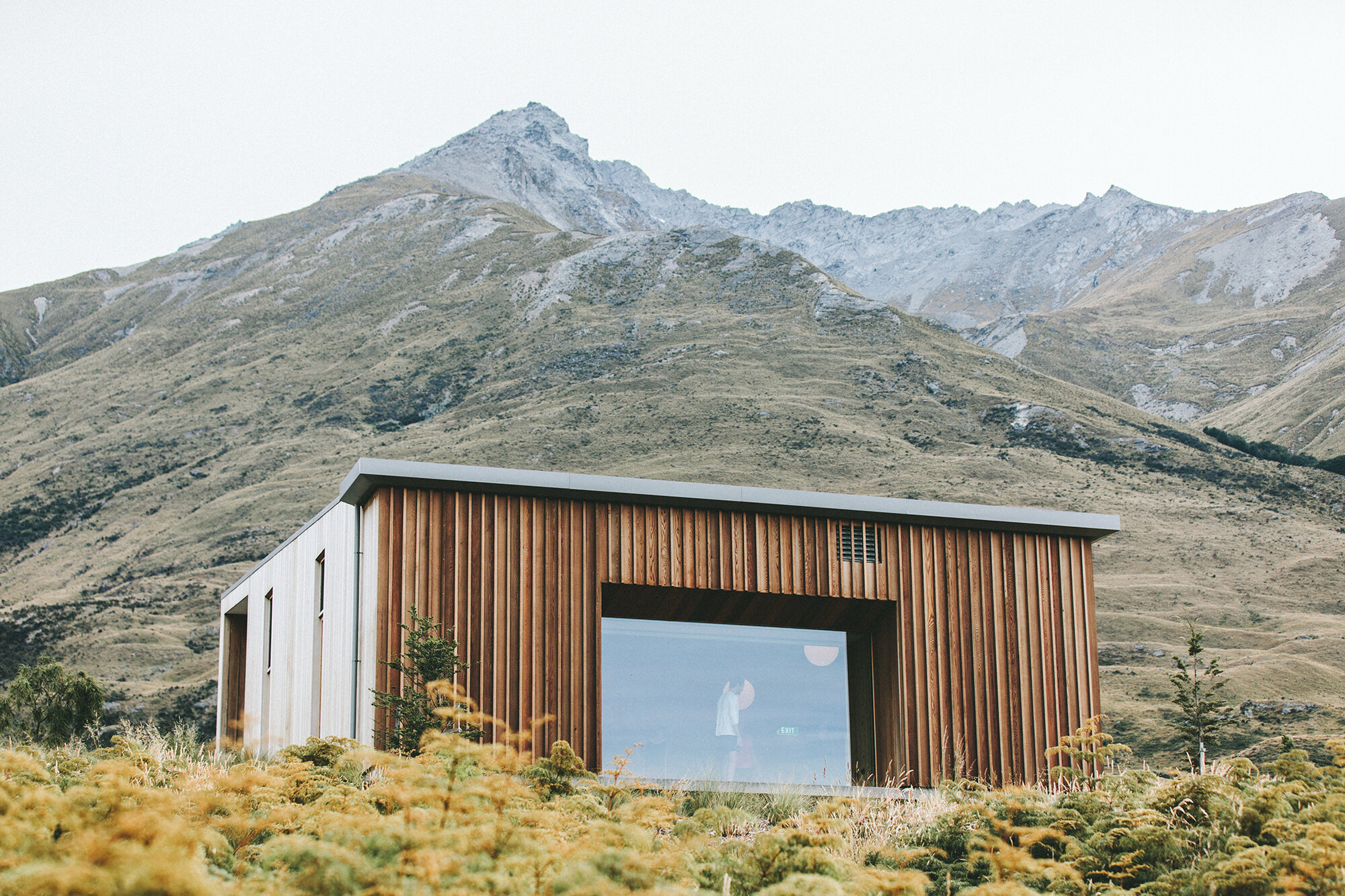Cherokee Nation At Large Mutual Assistance, Inc. (CNALMA) is a mutual assistance relief organization supporting Cherokee At-Large Citizens. Founded in July of 2023, the organization dedicated the first nine months to establishing organic documents and fundraising. A kick-off event at Chandler Park in Tulsa, Oklahoma on April 14 was the first to introduce CNALMA to the community. The website was operational, and the application process was in place. At-Large Cherokees from across the country started submitting requests for Assistance. Funding support is limited to disaster relief for one-time, unanticipated events such as help with burials or emergency events. Assistance with recurring expenses such as rent and utilities is beyond our scope. Assistance is limited to one annual award of $800 per household.
During our first three months of operation, we received 30 applications and assisted 18 families; three applications were incomplete, and the remainder were requests for recurring expenses beyond our scope of assistance. We are gratified to hear from those we’ve assisted. In the words of one At-Large recipient, “This organization made me feel connected to the Cherokee Tribe again. Your help made all the difference in the world to us. Thank you Chief and Councilman Kidwell for seeing us as Cherokees also.”
A financial snapshot depicts the source of income, amount of operating expenses, and total awards.
Goals for the Coming Year
In 2024-25, our goals are to increase fund development activities, integrate ongoing quality improvement practices regarding internal and external records of accountability, and assist 100 families over the next twelve months.
History of Cherokee At-Large Communities - At the 1995 Cherokee Nation Constitutional Convention, Cherokees from across the country traveled to Tahlequah, Oklahoma, to advocate for representation for At-Large Cherokee citizens. Before that time, voting At-Large Cherokee citizens identified a “home” district where their votes were counted. Spreading votes across the Districts diluted the voice of At-Large citizens and elected representatives focused on the needs of the local citizens in their respective districts. The At-Large community had no formal or recognized representation. During the 1995 Cherokee Nation Convention, that changed. The Constitution was amended, and the Tribal Council was expanded to include two new At-Large councilors. Over time, and with the support of the Cherokee Nation, more than 25 At-Large communities across 13 states have self-organized to provide social and cultural support to their At-Large residents. Still, emergency support from the Cherokee Nation is not available to them.
History of the Cherokee Nation At-Large Mutual Assistance, Inc. - To better help At-Large Cherokees with unmet emergency assistance needs, our current At-Large councilor, Johnny Kidwell, who is also a veteran of the Coast Guard and supporter of the Coast Guard Mutual Assistance program, recognized how that program model—people helping people—could be replicated for At-Large Cherokee Citizens. Through his efforts and with the support of the Cherokee Nation, the Cherokee Nation At-Large Mutual Assistance, Inc non-profit was legally established in July 2023. A board of three At-Large Cherokees, recommended by the At-Large councilors and Chief of Cherokee Nation, were tasked with creating policies and procedures to guide the new organization. A small grant from Cherokee Nation provided seed money to create a social media presence while giving limited support to At-Large Cherokees. In April 2024, CNALMA hosted a community event for At-Large Cherokees in the Greater Tulsa area to showcase the website and recruit support and donations for the program. CNALMA was formally launched! The concept of caring for our community is captured by the Cherokee word, di-ga-da-tse-li-I, “We belong to one another..”
What we know about At-Large Cherokees - To better serve our At-Large communities, research is required. A survey posed on the website garnered responses from 110 At-Large Cherokee and helped start the process. We learned that people from across the county found our website. Most came from Oklahoma, but other states were also represented—Alabama, Arkansas, California, Colorado, Georgia, Indiana, Kansas, Missouri, New Mexico, Nevada, Texas, Washington, and Wisconsin!
Our community members are veterans (14%) and primary caregivers (19%). About 73% live with two to five family members, and while most have stable income (88%), at least 12% experience financial hardships—food insecurity (14% to 38%) and transportation needs (6% to 36%).
Medical conditions affect about 40% of respondents, and the most frequently mentioned health conditions of concern are, in order of reporting: depression/anxiety (59%), hypertension (50%), arthritis (49%), diabetes (40%), and heart disease (23%). If a condition has been left untreated, it is due to lack of funds and insurance.
Several questions were aimed at learning more about the aging experience of At-Large citizens. Many of our respondents had Elders in the household, and making the home environment safe for aging family members was a concern for about 25%. Navigating stairs is problematic for 25%, and 11% use a walker or wheelchair. Ten percent need help with activities of daily living, and 7% had a fall in the prior three months.. Loneliness and feelings of isolation affect 24% of respondents.
Twenty-five percent were members of a Cherokee Community Organization, and many more were interested but did not know of an organization in their city.
Board of Directors
There are three CNALMA Board Members —Garry Martin, Brandon Scott, and Deborah Scott.
Acknowledgments
We would like to thank Chief Chuck Hoskin and the Cherokee Nation for their vision and support, the Central Oklahoma Community Foundation, and Cherokee Nation Councilors Johnny Kidwell, Julia Coats, and Kevin Easley.



